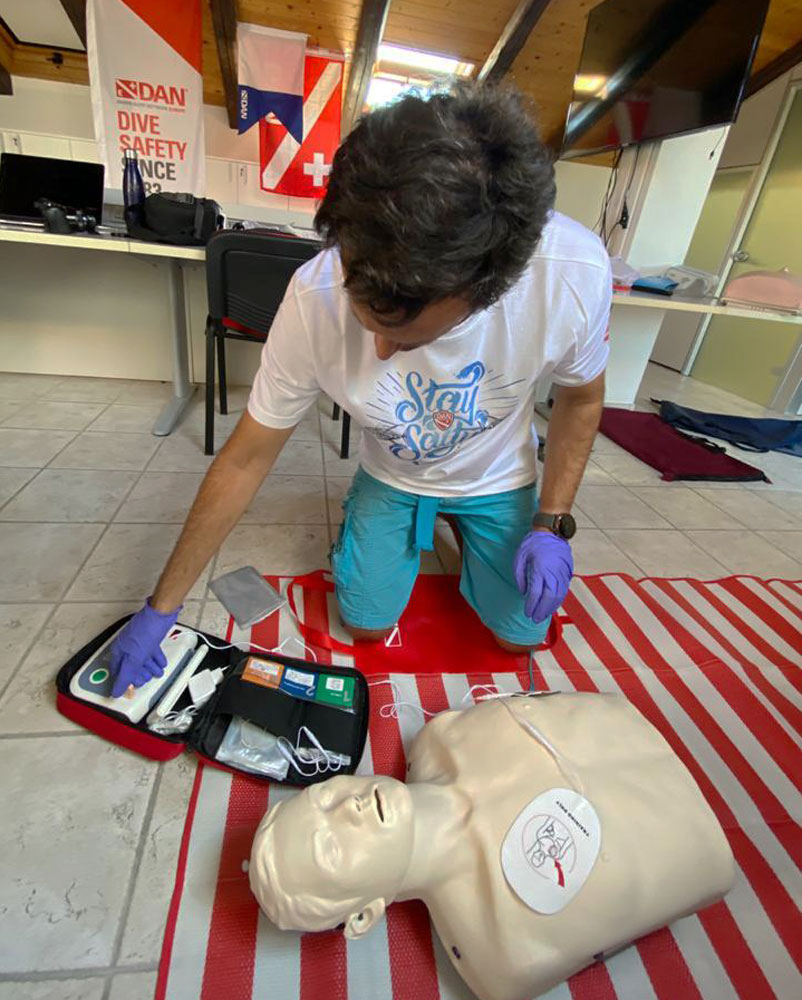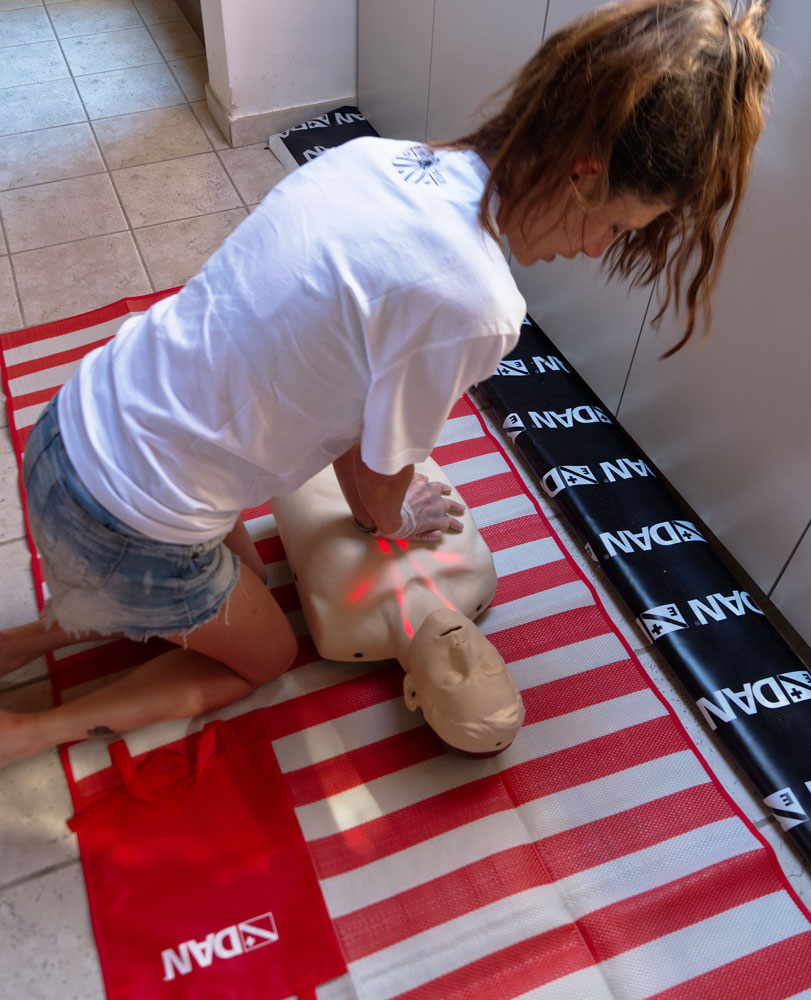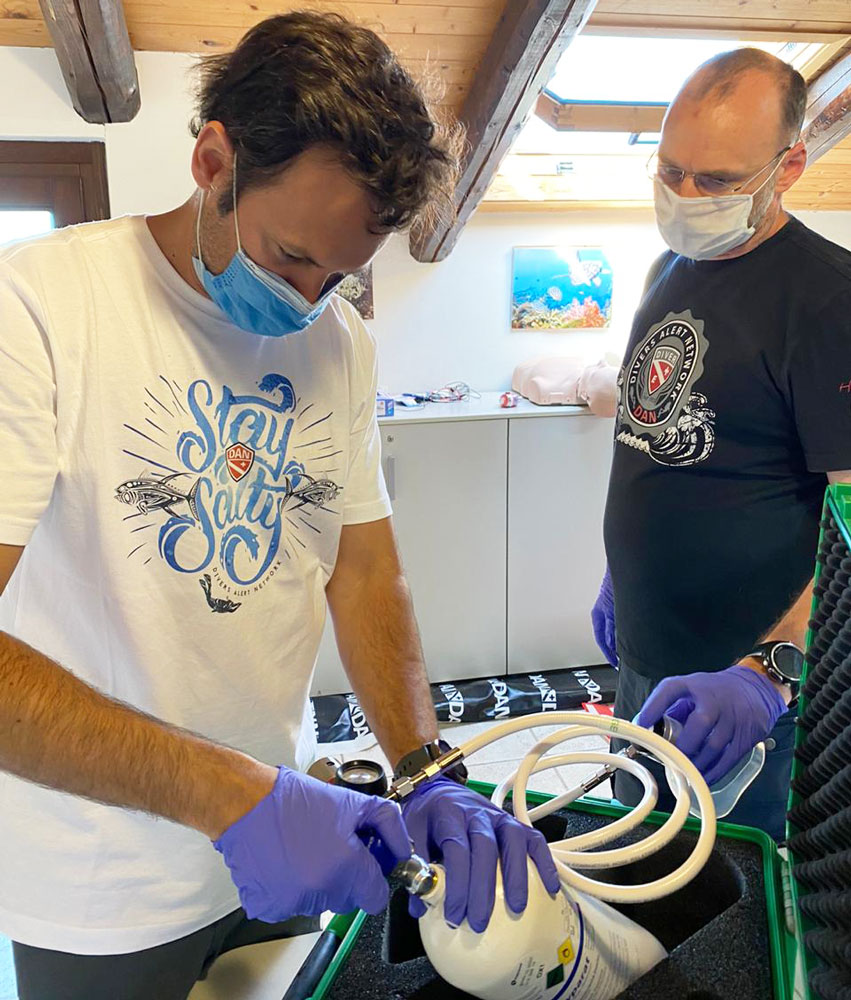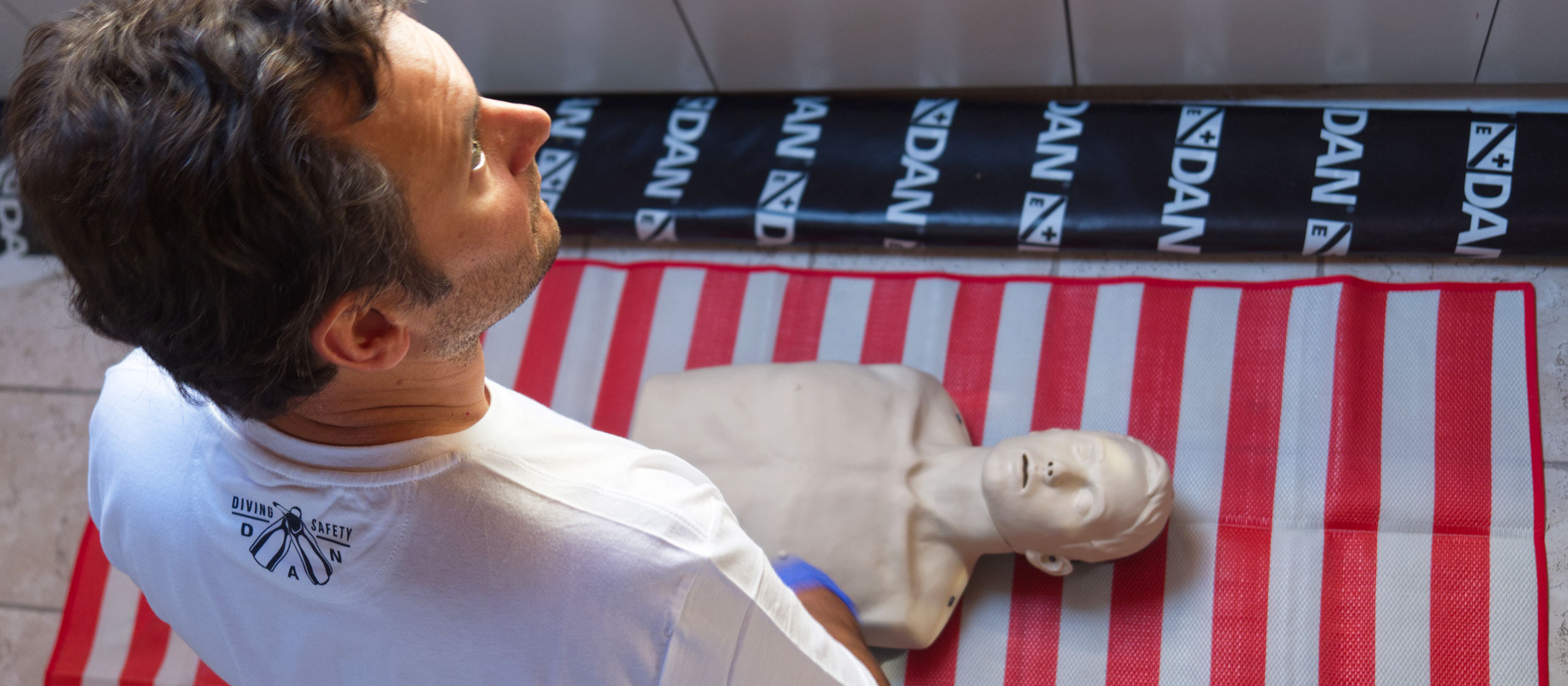Dive stories
First Aid Courses Every Good Diver Should Take
Welcome everybody to our second week as Resident Bloggers at the amazing DAN Europe Continental Office! What a productive time has been!
We spent the past few days learning fundamental first aid and safety procedures, which can be applied both everyday life and in diving emergencies. They are key to support – or even restore – someone’s life from threatening injuries, enabling us to extend the person’s reanimation window while Emergency Medical Services (EMS) arrive.
Knowing these essential techniques can significantly help increasing survival chances of an injured person, even a loved one. And these are a pretty awesome and important skills to have, whether you dive or not!
Well-designed (and respected) education
DAN Europe courses are developed by a team of Medical and Educational Specialists. Some programs are particularly addressed to divers or lifeguards, while others such as Basic Life Support (BLS), Automated External Defibrillation (AED), and First Aid, are aimed at the general public.
Each DAN course represents a specific area of First Aid, and consists of a theoretical part, plus a really interactive and practical one.
You can take these courses to gain further knowledge, to become an instructor, or as part of your professional healthcare or diving career.
Several professional Law Enforcement, Healthcare Professionals and Rescue Teams have chosen DAN Training. Among them, European Police teams, armed forces and fire brigades, the Finnish Boarder Guard, the Italian Red Cross, Coast Guard and Carabinieri, or the Slovenian Army.
Also well respected organisations and institutions, both in and out of the diving industry, preferred DAN Training: NOAA (National Oceanic and Atmospheric Administration, led by legendary diver and explorer Sylvia Earle), Apnea Academy, Belgian Diving Federation LIFRAS, Finnish Diving Federation Sukeltajaliitto, Swiss Resuscitation Council, Haute École Paul-Henri Spaak, Legoland Germany, and many more.

In an emergency, every second counts
We started our training with the Basic Life Support (BLS) & Automated External Defibrillation courses.
These programs aim to teach how to prevent an injured person from having a circulatory arrest – in cases like shock or choking – or to resuscitate them if necessary.
Every second counts during a cardiac emergency, and this courses focus on teaching how to act, according to the “survival chain”. It refers to 4 steps that, if properly executed, reduce the mortality associated with sudden cardiac arrest. Here they are:
- Recognition and activation of the emergency response system (EMS).
- Immediate high-quality CPR.
- Rapid defibrillation.
- Advanced live support and post-arrest care.
To be able to perform successfully and guarantee the “survival chain”, the courses teach the basics of anatomy and physiology, besides the correct techniques to perform chest compressions and rescue breathing.
We also learned how to properly use an Automated External Defibrillator (AED), which is a portable device that allows the heart to re-establish an effective rhythm by delivering an electric shock.
We continued this wonderful training program learning how to safely provide Oxygen First Aid in diving accidents with the Oxygen First Aid for Scuba Diving Injuries and the Advanced Oxygen First Aid for Scuba Diving Injuries courses.

We understood the importance that early recognition of common warning signs has in diving injuries.
The most serious symptoms occur within the first two hours following a dive, and knowing how to recognise them enables the injured diver to get opportune treatment, reducing the chances of residual effects.
The course also explains:
- In which cases the administration of Oxygen is beneficial.
- How to provide Oxygen correctly and safely.
- Oxygen equipment and recommendations for its use.
- Use of oxygen and the law.
Training under these programs gave us the confidence to act fast and efficiently in case of emergencies of this nature. Now, we know what to do.
Knowledge is power, and having the right tools to feel confident while helping someone injured is priceless.
But it doesn’t end here.

There are many more interesting courses in the DAN Europe repertoire that we also want to take! Some examples:
- Hazardous Marine Life Injuries
- Equalisation Awareness
- On-Site Neurological Assessment for Divers
- Dive Medicine For Divers
- Diver Medical Technician
We just can't wait to continue learning!
Thanks to DAN Europe for all the research they have done – and continue to do – in the field. Sharing this with us allows to safely do what we love the most: scuba diving!
About the authors
Manu Bustelo is an environmental entrepreneur & MarCom specialist. He’s worked in the adventure industry for over 20 years, representing numerous brand. He currently works with Aqua Lung, PADI & DAN Europe as an Ambassador. Alana Alvarez is a Pharmacist with a huge passion for the sea & conservation. When not scuba-diving or working as a DAN Ambassador, Alana fills in her time connecting the dots between cooking and sustainable eating. They are a loving couple but above all, a team.


